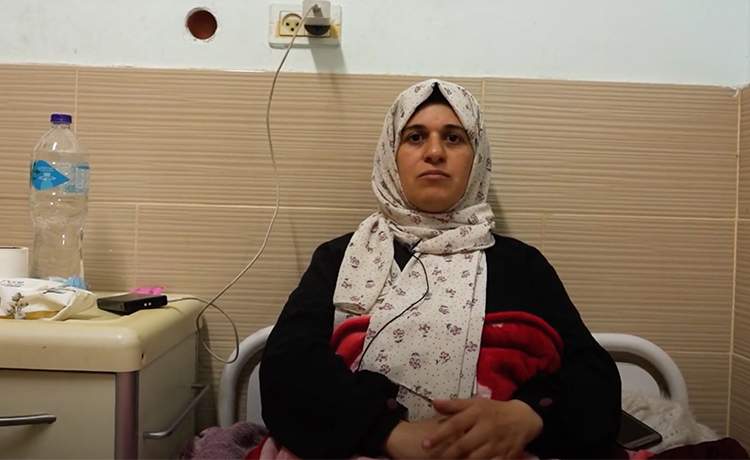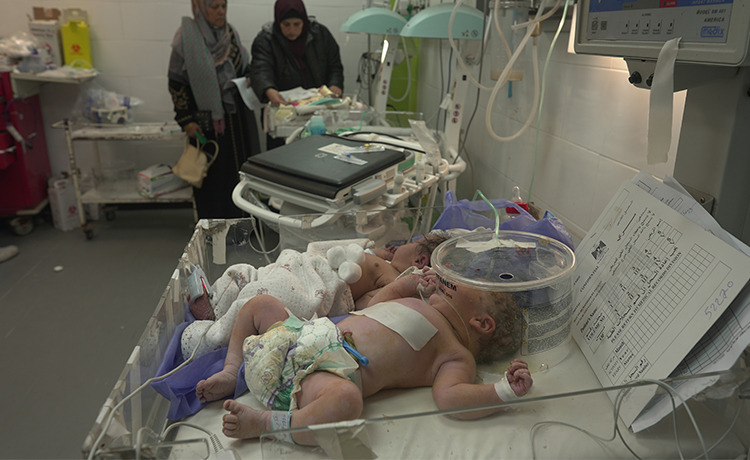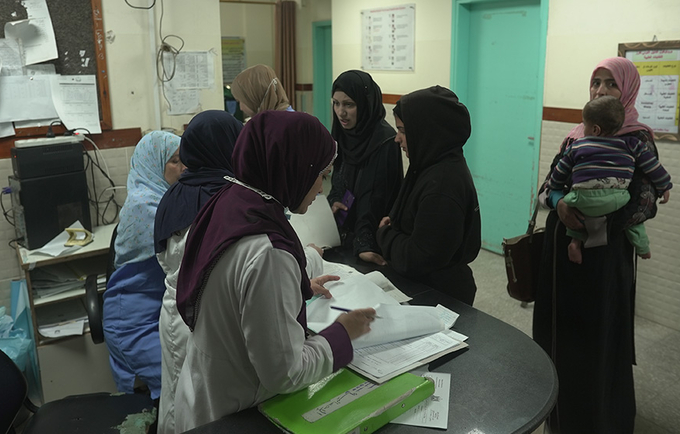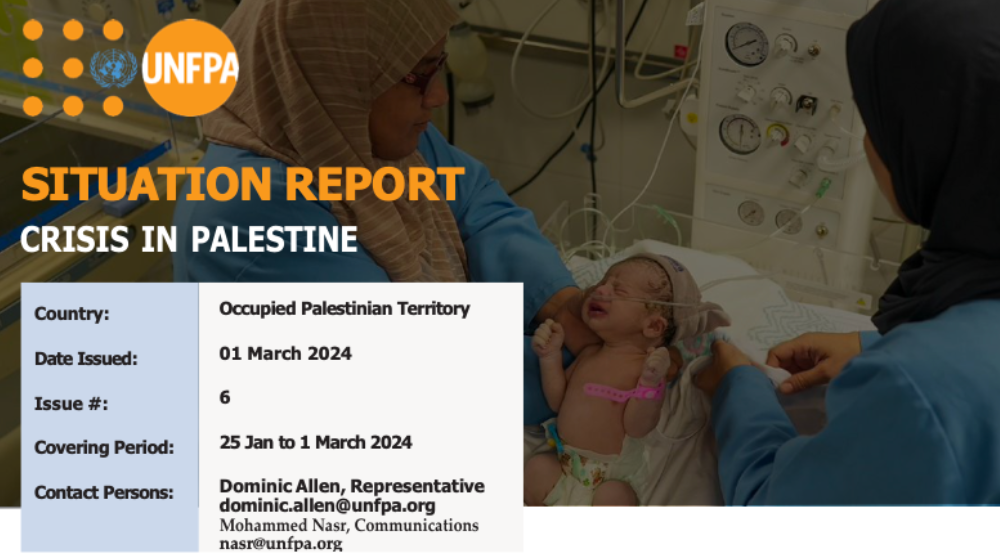Rafah, GAZA STRIP – “It was exhausting – we handled 78 cases in one night.” There are only five beds for deliveries at the Al-Helal Al-Emirati maternity hospital in Rafah, where midwife Samira Hosny Qeshta works.
This is one of southern Gaza’s few remaining functioning hospitals. UNFPA, the United Nations sexual and reproductive health agency, has provided it with essential supplies such as medicine and reproductive and maternal health kits – but the small facility is ill-equipped to handle this level of disaster.
“All the displaced people are in Rafah city – all the load is on us,” Ms Qeshta explained. “There are very few midwives, very few beds and very few doctors.”
Staff have described the horror as endless injured and ill patients stream in, including pregnant women, new mothers and infants. Newborns are dying because the mother couldn’t attend prenatal or postnatal check-ups – or because there aren’t any facilities left to go to.
As Ms Qeshta explained, “Most of them stopped any follow-up since their seventh month. They're just coming for delivery now, hoping for the best.”
The incessant bombings, fleeing for safety and fear are also taking the heaviest toll on many, said Dr Ahmed Al Shaer, a paediatric specialist at the hospital. “This is a result of terror and anxiety [...] leading to premature birth. Such cases are a challenge even on ordinary days – so imagine now. It’s a tragic situation.”

36-year-old Suhad Matar who made the arduous journey from her home in Jabalia to Rafah while pregnant, later giving birth by Caesarean section in the UNFPA-supported Al-Helal Al-Emirati maternity hospital. © UNFPA Palestine/Bisan Ouda
A public health crisis
The reported rise in obstetric emergencies comes as the remaining health facilities in Gaza are under unbearable strain. Infectious diseases are rife in overcrowded, insecure shelters – as well as in hospitals that are also under attack – while hunger, dehydration and death stalk every corner.
For newborns, it’s an unbalanced fight for life. “We have to put four or five babies in one incubator... Most of them don’t survive,” said Dr Al Shaer.
Infections are rampant from unsanitary toilets and showers, posing dangers especially for pregnant women and young children. “Most of the women come with infections,” explained Ms. Qeshta. “The bathrooms are shared and infections are easily transmitted; even the underwear they can't change frequently – all of this contributes to infections.”
More than three quarters of the population of Gaza have been forced from their homes since the outbreak of the conflict, many of them multiple times. Most are struggling in squalid and dangerous conditions, with no shelter from the violence and only a flimsy tent as cover against the wind, rain and cold. Amid this catastrophe, some 5,500 women are due to give birth in the next month with barely any access to medical assistance, and more than 155,000 pregnant and breastfeeding women are at high risk of malnutrition.
Many of them are trapped in Rafah, which even before the escalation of hostilities was one of the most densely populated parts of Gaza. Now its population has swelled by 500 per cent, as more than 1.4 million Palestinians are under threat of an imminent Israeli ground offensive.
Among them is 36-year-old Suhad Matar, who made the arduous journey from Jabalia while pregnant after her family’s home was bombed. “Every time it rains, the tent floods and it takes days for the beds to dry out. Today I’m scheduled for a Caesarean section, then I'll return to the same suffering.”
On top of the appalling living conditions, she doesn’t have the basic necessities to care for her newborn – or herself. “The clothes I have are just for the day of delivery; that's all. The tent is very, very cold, no matter how much we cover up. What worries me most is how I'll keep [my newborn] warm.”
She is anxious about the delivery itself, too. “They told us that whoever needs to should bring a mattress and pillow to sleep on if she needs to enter the ward and give birth.”

At the Al-Helal Al-Emirati maternity hospital in Rafah, where midwife Samira Hosny Qeshta works, the lack of supplies, medicine and electricity mean four or five newborns must be crammed into one incubator. © UNFPA Palestine/Bisan Ouda
Fearing for the future
For those who do manage to secure a bed, the delivery is riddled with uncertainties. Ms Qeshta described how one woman had miscarried recently. “She didn't even know… She just didn't feel movement for a while, that's it. And of course, she hadn’t followed up. She's displaced, in a tent. What would bring her here?”
There have been more than 360 attacks on health facilities in Gaza since 7 October; those still standing – and their staff – are buckling under the pressure to save lives with barely any equipment. “We're in a crisis,” Ms Qeshta said. “We don't have enough tools. We deliver even without sheets, directly on the leather bed.”
“While one woman is giving birth, we bring another case, and there's no bed. We say, 'Get up, sit on a chair' – and she just gave birth. There's no hygiene, there's no privacy [...] It's miserable.”
UNFPA deliveries continue as possible
Where access allows, UNFPA has been distributing critical medicine and equipment to health facilities across Gaza, among which the Al-Helal Al-Emirati hospital in Rafah. The deliveries cover maternity, postpartum and reproductive health supplies, including for obstetric emergencies, as well as dignity kits and menstrual hygiene management kits.
UNFPA also provided one-off cash transfers to vulnerable women and delivered gender-based violence prevention and response sessions. But so much more is needed as communities and hospitals come under increasing attack and the health system in Gaza hangs by a thread.



